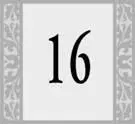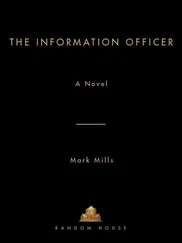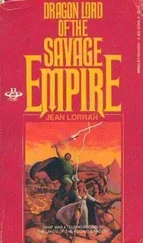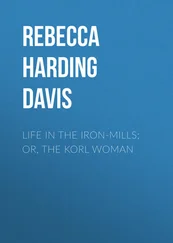Mark Mills - The Savage Garden
Здесь есть возможность читать онлайн «Mark Mills - The Savage Garden» — ознакомительный отрывок электронной книги совершенно бесплатно, а после прочтения отрывка купить полную версию. В некоторых случаях можно слушать аудио, скачать через торрент в формате fb2 и присутствует краткое содержание. Жанр: Старинная литература, на английском языке. Описание произведения, (предисловие) а так же отзывы посетителей доступны на портале библиотеки ЛибКат.
- Название:The Savage Garden
- Автор:
- Жанр:
- Год:неизвестен
- ISBN:нет данных
- Рейтинг книги:4 / 5. Голосов: 1
-
Избранное:Добавить в избранное
- Отзывы:
-
Ваша оценка:
- 80
- 1
- 2
- 3
- 4
- 5
The Savage Garden: краткое содержание, описание и аннотация
Предлагаем к чтению аннотацию, описание, краткое содержание или предисловие (зависит от того, что написал сам автор книги «The Savage Garden»). Если вы не нашли необходимую информацию о книге — напишите в комментариях, мы постараемся отыскать её.
The Savage Garden — читать онлайн ознакомительный отрывок
Ниже представлен текст книги, разбитый по страницам. Система сохранения места последней прочитанной страницы, позволяет с удобством читать онлайн бесплатно книгу «The Savage Garden», без необходимости каждый раз заново искать на чём Вы остановились. Поставьте закладку, и сможете в любой момент перейти на страницу, на которой закончили чтение.
Интервал:
Закладка:
"Caterina? Oh, she held the watch."
"What is she like?"
Maurizio gave a thin smile. "Difficult. You will meet her at the party."
"She's coming?"
"It is the only time she comes—for the party." He paused. "You will still be here, I hope."
"Yes. I mean, if that's okay."
"Of course it is. You must be there . . . after everything you've done for my mother."
It was a weighted compliment, and for a moment it seemed Maurizio was about to steer the conversation this way. He didn't, though; he asked if Adam would accompany him on a quick tour of the garden.
They had just passed through the glade of Hyacinth when Maurizio said, "Can I ask you to do something for me? A favor."
"Of course."
"It's about my mother. You have had a very good effect on her."
"I doubt that."
"It's true. She says so herself. Anyway, it shows. We can all see it." He paused. "But something worries me, something Maria has told me. She takes pills for the pain. Not Maria, my mother, I mean . . . although I'm sure there are times when Maria could use them too."
Adam smiled politely at the joke.
"Recently she has taken a lot. The doctor was here yesterday. Twice. He came back with more pills. Maria found them. She thinks they are even stronger than before."
His gaze lingered meaningfully on Adam.
"I'm not sure I understand."
"My mother is a proud woman. She has always pushed herself. Maybe she is pushing herself too much. Maybe even to impress you."
"Me?"
"It's possible. Her new companion . . ."
His tone was tinged with mockery, and it rankled.
"What's the favor?" Adam asked, just shy of unfriendly.
"That you keep an eye on her. That you don't encourage her . . . to push herself too much."
"Of course."
"She is still weak."
"I understand."
They were able to put this moment of mild antagonism behind them for the remainder of the circuit. Adam even laughed when Maurizio described how his sister had once dressed the statue of Venus in one of their mother's old party gowns.
Returning to the foot of the amphitheater, Adam recovered his copy of The Divine Comedy from the bench.
"A masterpiece," observed Maurizio.
"Absolutely."
"Where have you got to?"
"The ninth circle of Hell."
Maurizio searched his memory. "The ninth circle . . . ?"
"Caina. Those who've committed crimes against their own flesh and blood. Dante named it after Cain, who killed his brother, Abel."

Later that night, lying in the big old bed, staring into the darkness, he tried to make sense of his reply to Maurizio's innocent inquiry.
The words had issued from his mouth, and in that respect they had been his. But even now he felt no ownership of them, no responsibility for them. He had not intended to speak them. They had tumbled from his lips unbidden. This might have been less troubling if there had been more truth to them.
He had, in fact, progressed well beyond the ninth circle of Hell—with its icy lake and its host of sinners frozen up to their necks—and on into Purgatory.
The most worrying thing, though, was the change his words had wrought in Maurizio. The mention of Cain and Abel had, for the briefest of moments, cast his features in stone and turned his eyes cold and crystal-hard.

HE WOKE LATE AFTER A FITFUL NIGHT'S SLEEP. THE NEW day brought a new clarity with it. He had allowed his mind to run away with him; he had imagined things that weren't there—or, at the very least, misinterpreted those that were. This realization gave him comfort, and he forced himself to think only of things that wouldn't jeopardize that.
His resolve faltered somewhat when he headed downstairs to the study. He couldn't be sure, but he had the distinct impression that someone had been through his papers on the desk. There was something not quite right about the topography of the various piles. Some sat too close together, others were too neatly ordered. The first thing he did was delve through them and pull out all of his scribblings relating to Emilio's death. These he burned in the grate.
He made his way to the cavernous, brick-vaulted kitchen in the south wing, Maria's spotless domain. She was nowhere to be found, although the air was thick with the caustic odor of bleach liberally and recently applied. It was Sunday; maybe she was at church.
The room gave little away about its tenant aside from a whisper of brisk and efficient orderliness. The surfaces were clear, the fresh fruit and vegetables neatly piled in their terra-cotta bowls, the copper pans back on the long shelf, arranged from left to right in ascending order of size. There was certainly no visible record of the small feast Maria had prepared for him and Signora Docci the evening before.
The dinner had been a subdued affair at first. Visibly depleted by her foray into Florence, Signora Docci had nevertheless reported the trip in some detail, describing a visit she had paid to an old friend—"Her husband is a homosexual, but after all these years she still cannot see it." She went on to list the numerous purchases she had made, everything from a fennel-flavored salami to an antique ebony walking stick, which she had handed to him across the candlelight of their table on the back terrace.
It had a whalebone pommel in the form of a human skull. Adam stared at the pale, carved death's-head.
"It's appropriate," said Signora Docci. "I shall be clutching it until the end. I don't mind being reminded of that fact."
Fearful that he was being drawn out of his conversational depth, Adam headed for shore. He asked her about the skulls in the study, the ones high up in the cabinet behind the desk—orangutan skulls, if he had understood Maria correctly.
"My father was a naturalist, a botanist. This was before he became an archaeologist. He was many other things too. He was a . . . disoriented man, I can see that now. At the time it was, well, exciting."
They were indeed orangutan skulls, keepsakes from a trip the family had made to the Dutch East Indies in the last century.
Signora Docci said she couldn't remember if her mother had put up a fight when her father first proposed that the whole family travel with him. In fact, there was much she couldn't recall about that period in her life, being only six years old in 1884, the year they steamed out of Livorno.
"Your Mr. Darwin was to blame, with his theories of evolution and natural selection. My father was a scientist, but he was also a religious man, a strict Catholic; it was not easy for him to accept the new ideas. He fought them for twenty years with words, then he went in search of the evidence his arguments lacked. That's why he dragged us halfway around the world."
Her memories of the East might have been patchy, but they were somehow no less vivid for it. She could recall the grandeur of her parents' stateroom on the boat over. She remembered the latitude starting to tell on familiar constellations, the Great Bear's tail dipping below the horizon as they slipped southward on the Suez Canal. This phenomenon was pointed out to her by a Scotsman many years her senior with whom she developed a close relationship (but only, she now realized, because her nanny had been so eager to spend time in the company of Walter F. Peploe—the F stands for foolish, Nanny had said).
Walter F. Peploe claimed to be an expert on all matters pertaining to the weather, and he certainly had the equipment to prove it. The captain allowed him to lash a louvered cabinet fitted with thermometers and other paraphernalia to a spar in the after-part of the ship. His pride and joy, though, was what he called his "Richard" barograph—a free-swinging contraption that he'd rigged in his cabin, and which gave accurate atmospheric readings irrespective of the ship's roll. He was adamant that all vessels should be fitted with such a device if they were to avoid the perils of a sudden tempest. His stated aim in life was to persuade the Dutch authorities in Java to adopt the barograph on all government vessels plying the treacherous waters of the East Indies, and thereby make his fortune.
Читать дальшеИнтервал:
Закладка:
Похожие книги на «The Savage Garden»
Представляем Вашему вниманию похожие книги на «The Savage Garden» списком для выбора. Мы отобрали схожую по названию и смыслу литературу в надежде предоставить читателям больше вариантов отыскать новые, интересные, ещё непрочитанные произведения.
Обсуждение, отзывы о книге «The Savage Garden» и просто собственные мнения читателей. Оставьте ваши комментарии, напишите, что Вы думаете о произведении, его смысле или главных героях. Укажите что конкретно понравилось, а что нет, и почему Вы так считаете.











